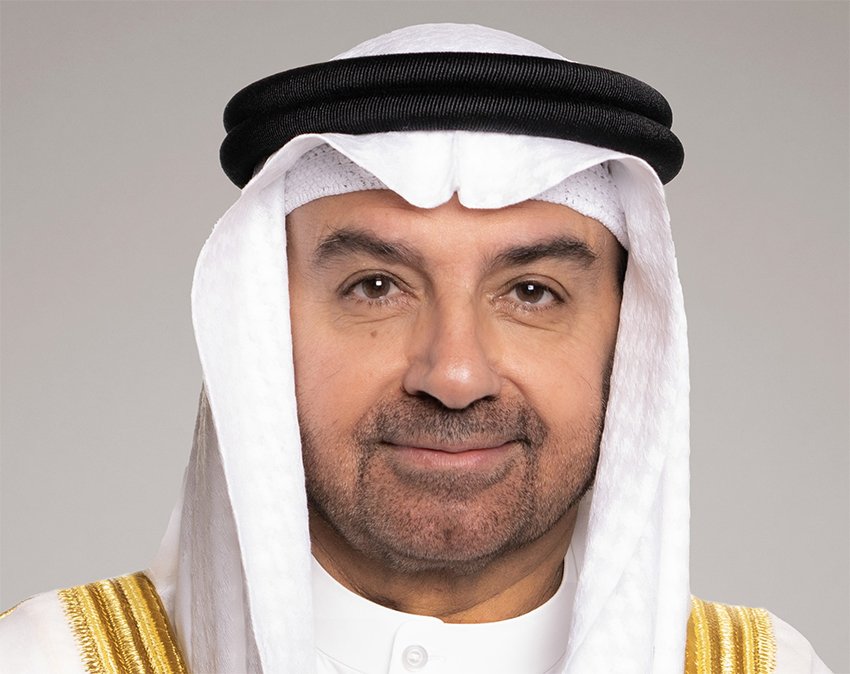08/07/2023
08/07/2023
KUWAIT CITY, July 8: Deputy Prime Minister, Minister of Oil and Minister of State for Economic Affairs and Investment Dr. Saad Al- Barrak has revealed Kuwait will invest more than $300 billion in energy in the long term until 2040, reports Al-Rai daily. On the sidelines of the eighth international symposium of the Organization of Petroleum Exporting Countries (OPEC), which was held in Vienna over two days, Al-Barrak said in a statement to Kuwait TV and KUNA that “the world needs today 500 billion dollars annually to invest in the field of energy, while it invested only 300 billion dollars in 2022.” He added, this shows there is a gap estimated at more than 40 percent, which creates difficulties in the global energy market.

He called for a further increase in the volume of investment in the energy market to protect it from price fluctuations and achieve stability in the global economy. He pointed to the importance of the role played by Kuwait, the founding member of OPEC, in the field of energy since the founding of the organization on September 14, 1960, and its contribution to strengthening the stability of global oil markets. He noted that Kuwait made many sacrifices in order to control and determine production levels according to market needs, and prevent price fluctuations. In statements to the Emirates News Agency, WAM, Al-Barrak affirmed Kuwait’s readiness to cooperate with the brothers in the UAE for the success of its hosting of the Conference of the Parties (COP 28), which is the most important climate and environmental event hosted by the region.
Commitment
He stressed Kuwait’s commitment to achieving zero carbon emissions by 2050, noting that it aims to invest in alternative and environmentally friendly energy, in order to enhance its position as a global energy center. On the other hand, the official Iranian news agency “IRNA” reported that Iranian Energy Minister Javad Oji met his Saudi counterpart, Prince Abdulaziz bin Salman, on the sidelines of the “OPEC” conference in Vienna, noting that the two sides discussed bilateral issues between the two countries, including investment in the oil sector and exploring the possibility of joint investment in oil and gas.
The agency stated that “the topics of discussion also included issues such as hydrocarbon trade and the development of common areas.” Meanwhile, Secretary-General of OPEC Haitham Al Ghais spoke highly of Kuwait’s active participation in the eighth Vienna energy symposium currently organized by the bloc. Speaking to KUNA on Thursday, Al-Gais praised participation of Kuwait’s Deputy Prime Minister, Minister of Oil and Minister of State for Economic and Investment Affairs Saad Al-Barrak in the symposium and its ministerial session, which focused on raising output capacity through increasing investment. Al-Gais further expressed gratitude to the Ministry of Information for its effective partaking to cover this international event organized by OPEC every three years. He stressed the importance of the seminar, which gathered together energy decision-makers from varied countries all over the world to discuss the best ways to address challenges facing this sector.
OPEC periodical data underlines the necessity of energy investment worth USD 12 trillion as of now and until 2045 that includes exploration, production, refining, petrochemicals, and transport and shipping, Al Ghais said. OPEC encourages investment, which has great importance, he added, noting that OPEC member states play their role in this regard. Global economy will have doubled and population will have increased by 1.5 billion by 2045, he made clear. OPEC chief warned against energy poverty facing millions who do not have the simplest methods of energy and electricity.
Consequently, he stressed the significance of investment to meet demands for energy supplies at reasonable prices. He referred to OPEC oil ministers’ meeting held on the sidelines of the symposium, adding that it was an opportunity to maintain communication amongst OPEC and non-OPEC member states. Al Ghais indicated that the seminar featured a large number totaling 950 participants who stressed their interest in energy. All agree that energy crisis can not be addressed by only one solution, he said, signaling that the world is talking about gradual transformation in energy use. He finally criticized those who said that oil producers are responsible for environment pollution. He proved that there are some OPEC members, which pay much attention to reduce emission in oil output and refining.


